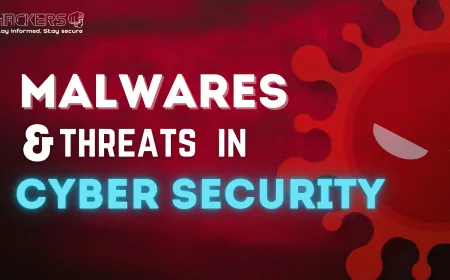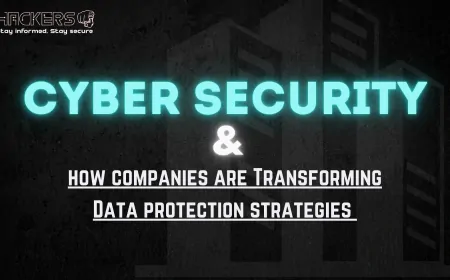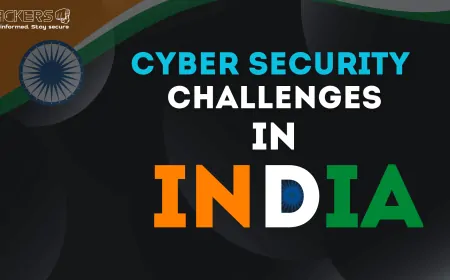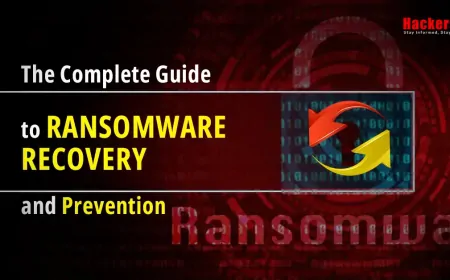Latest scams going around in USA & India
Stay informed about the latest scams in the USA and India in 2024. Learn how to identify common fraudulent activities like phishing, online shopping frauds, investment scams, and more. Find tips on protecting yourself and preventing cybercrime in this comprehensive guide.

Introduction
Scams are an ever-present threat in today's digital age, particularly as online activity and digital transactions continue to grow. Both the USA and India have seen an alarming rise in fraudulent schemes designed to trick individuals into parting with their money, personal information, or both. While scams are nothing new, the tactics used by scammers have evolved with advancements in technology. They are now more sophisticated and harder to detect, taking advantage of everything from social media platforms to phishing emails and fake job offers. The risk of falling victim to scams is high if people are not aware of these tactics. This article delves into the most prevalent scams in the USA and India, explaining how they work, how to spot them, and how to protect yourself from falling prey to these malicious activities.
1. Phishing Scams
Phishing is one of the most widespread cyber scams affecting individuals globally. It involves attackers impersonating legitimate institutions such as banks, government organizations, or tech support teams in order to trick individuals into revealing sensitive information, such as usernames, passwords, and bank account details. Phishing scams can occur via email (email phishing) or SMS (smishing), and with the rise of social media, these methods have expanded to include fake social media profiles and fake online forms. In the USA, phishing attacks have become more prevalent due to the surge in online banking and digital financial transactions. Meanwhile, in India, phishing scams often target individuals through calls, claiming to be from major banks or telecom companies.
| Scam Type | Description | Recent Examples |
|---|---|---|
| Email Phishing | Fraudulent emails posing as well-known institutions. | In the US, fake IRS emails offering tax refunds or threatening tax penalties. |
| SMS Phishing (Smishing) | Fraudulent text messages leading to fake websites. | In India, SMS phishing campaigns that appear to be from major banks, asking for OTP details. |
These phishing attempts often look deceptively real, making it essential for individuals to be cautious about unsolicited messages and verify any communication before taking action.
2. Online Shopping Scams
As e-commerce continues to grow in both the USA and India, so does the number of scams targeting online shoppers. Fraudulent websites often replicate popular brands or create fake online stores offering irresistible deals. Scammers use these sites to collect payment details without delivering any goods. In many cases, once a purchase is made, the buyer receives nothing in return, or the product is vastly different from what was advertised. In addition to fake websites, social media platforms have also become a hotbed for scams, with ads offering unrealistically cheap products or services that never arrive. Customers are urged to be extra cautious when shopping online, checking for reviews and ensuring the legitimacy of the website or seller.
| Scam Type | Description | Recent Examples |
|---|---|---|
| Fake E-commerce Websites | Fraudulent websites that look legitimate but scam users. | Numerous fake shopping websites impersonating Amazon and Flipkart. |
| Social Media Ads | Ads that promote non-existent products or services. | On Instagram, fake ads for electronics and gadgets that never ship. |
It’s essential to check for "https" in the URL, read customer reviews, and look out for signs of website flaws such as spelling mistakes or inconsistent product images.
3. Investment Scams
Both in the USA and India, investment scams continue to flourish as fraudsters prey on people seeking to grow their wealth. These scams promise high returns with little or no risk, making them incredibly attractive to potential victims. Fraudulent schemes often revolve around cryptocurrency investments, fake stock market opportunities, or fake real estate deals. In the USA, scams involving "too-good-to-be-true" cryptocurrency trading platforms or fake Bitcoin investments have been widespread. In India, Ponzi schemes remain a significant concern, with victims often drawn into them through promises of rapid financial growth. These scams typically collapse when the fraudster is unable to sustain the promised returns, leaving investors with significant losses.
| Scam Type | Description | Recent Examples |
|---|---|---|
| Cryptocurrency Fraud | Fake cryptocurrency investments or trading schemes. | Fake crypto investment platforms in both the US and India offering "guaranteed returns." |
| Ponzi Schemes | Scams that promise high returns through a chain of investments. | In India, Ponzi schemes promoted via social media, promising quick profits from real estate investments. |
Individuals should always conduct due diligence before making any investment, especially when high returns are promised without clear explanations of risk.
4. Tech Support Scams
Tech support scams have become a common issue, targeting individuals by posing as legitimate companies like Microsoft, Apple, or Dell. In these scams, a victim receives a call or sees a pop-up message on their computer telling them that their device is infected or has a serious security issue. The scammers often claim to be from a reputable company and ask the victim to grant remote access to their device or pay for unnecessary repairs. These types of scams are prevalent in both the USA and India, where tech support scams have targeted both English-speaking users and those who speak local languages.
| Scam Type | Description | Recent Examples |
|---|---|---|
| Phone Tech Support Scams | Fraudulent phone calls from scammers posing as tech support. | In the US, scammers calling claiming to be from Microsoft, stating that the victim's computer is infected. |
| Pop-Up Tech Support | Pop-up alerts that direct users to scam websites. | In India, pop-up alerts on popular websites stating that users need to call a tech support number. |
If you receive an unsolicited call or pop-up claiming that your computer has a problem, it’s best to hang up or close the window and consult with an official tech support team directly through verified contact information.
5. Job Offer Scams
Scammers are also targeting job seekers with fraudulent job offers that promise easy and high-paying work from home opportunities. In the USA, many job scams center around fake offers for remote positions, where scammers often ask for an upfront fee or personal information as a condition for employment. In India, job scams have become particularly prevalent in sectors like IT, teaching, and customer service. These scams often involve fake companies or recruitment agencies asking for payment for job placement services that are never rendered.
| Scam Type | Description | Recent Examples |
|---|---|---|
| Fake Job Postings | Scammers post fake job opportunities to steal money or information. | In the US, fake remote tech jobs offered on LinkedIn, asking for a fee to process applications. |
| Work-From-Home Scams | Fake work-from-home offers promising high salaries. | In India, job seekers are targeted with fake data entry positions or online tutoring roles. |
To avoid falling victim to a job scam, always research the company or agency thoroughly, and never pay upfront fees for a job.
6. Romance Scams
Romance scams have taken a more prominent role in online fraud schemes, with scammers using dating websites, apps, or social media to build fake relationships with individuals. These scams often start with the creation of a fake profile and involve scammers establishing emotional bonds with their victims. Once trust is built, they invent a personal emergency or situation requiring financial assistance, such as needing money for a flight or a medical emergency. Victims of romance scams are often isolated individuals looking for companionship, making them more susceptible to these emotional manipulations.
| Scam Type | Description | Recent Examples |
|---|---|---|
| Online Dating Scams | Scammers pose as romantic interests to gain trust and money. | Scammers using fake profiles on Tinder and Facebook to trick victims into sending money. |
| Emergency Scams | Scammers fabricate an emergency to ask for money. | Fake emergency stories used by scammers to get money from victims in both the US and India. |
If someone you meet online starts requesting money for any reason, be cautious and never send funds without verifying their story through independent means.
Conclusion
In conclusion, staying vigilant is the best defense against scams, whether you're in the USA or India. Scammers are constantly adapting their tactics to exploit new technologies and trends, so it’s essential to stay informed about the latest scams. Key strategies for protecting yourself include verifying the legitimacy of unsolicited emails or phone calls, using strong and unique passwords, keeping your personal information private, and being cautious when sharing payment details online. In case of doubt, always cross-check information with trusted sources and report suspicious activities to the authorities. Being proactive and aware is the key to safeguarding your finances and personal data from the ever-growing threat of online fraud.
(FAQs)
1. What are the most common scams in the USA and India right now?
Answer: Some of the most common scams in both countries include phishing attacks, online shopping scams, tech support frauds, investment schemes, and job offer scams. In the USA, scammers often use email or SMS to impersonate legitimate businesses, while in India, fraudulent job placements and Ponzi schemes are more prevalent. In both countries, these scams frequently involve tricking victims into providing sensitive information or paying upfront fees.
2. How can I recognize a phishing email or text message?
Answer: Phishing emails or SMS messages often come from suspicious or unfamiliar sources, and they typically urge you to act quickly or provide personal details. Common signs include incorrect grammar, requests for sensitive information (like passwords or bank account details), and hyperlinks that lead to websites unrelated to the legitimate company they claim to represent. Always verify the sender and double-check the URL.
3. What are online shopping scams, and how can I avoid them?
Answer: Online shopping scams involve fake websites that offer goods at a very low price or advertise products that don’t exist. To avoid falling victim, always check for customer reviews, ensure the website has secure payment options (look for "https" in the URL), and be cautious of deals that seem too good to be true. Stick to well-known online retailers.
4. How do investment scams work, and how can I protect myself?
Answer: Investment scams typically promise high returns with little to no risk, often involving fake cryptocurrencies, stocks, or real estate ventures. They may seem legitimate but require an upfront payment or personal information. To protect yourself, research any investment opportunity thoroughly, verify the legitimacy of the business, and never invest money you cannot afford to lose.
5. What should I do if I receive an unsolicited tech support call?
Answer: If you receive a call claiming to be from a tech support company and they ask for remote access to your computer or payment for repairs, hang up immediately. Legitimate tech support companies do not make unsolicited calls. Always call the company directly using verified contact information to inquire about any technical issues.
6. How can I spot a fake job offer?
Answer: Fake job offers often involve requests for upfront payments, asking you to buy equipment or courses as a condition of employment. The employer may also use a generic email address rather than a company domain. Always research the company, read reviews, and never pay money for a job.
7. What is a Ponzi scheme, and how can I identify one?
Answer: A Ponzi scheme is an investment scam that pays returns to earlier investors using the capital of newer investors, rather than from profit earned. These schemes collapse when the flow of new investors stops. Red flags include promises of high returns with low risk, pressure to recruit others, and a lack of transparency. If it sounds too good to be true, it probably is.
8. Are romance scams common, and how do they work?
Answer: Yes, romance scams are prevalent and typically target people looking for love or companionship. Scammers create fake profiles on dating apps or social media, establish a relationship, and then fabricate emergencies requiring financial help. If you’re asked for money by someone you haven’t met in person, it's likely a scam.
9. What should I do if I suspect I've fallen victim to a scam?
Answer: If you suspect you’ve been scammed, immediately report the incident to local authorities and any relevant financial institutions. If personal information has been compromised, consider changing passwords and freezing your credit. Document all communications and details of the scam, and be cautious about future interactions.
10. How can I protect myself from scams in general?
Answer: To protect yourself from scams, remain skeptical of unsolicited offers, particularly those that involve money or personal information. Use strong, unique passwords, enable two-factor authentication where possible, and regularly monitor your financial statements. Staying informed about common scams and practicing vigilance will help you avoid falling victim.
Tags:
What's Your Reaction?






























































